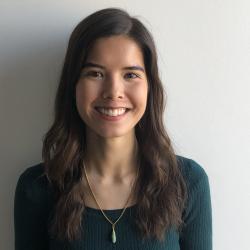The Gurdon Institute
Research theme: Bioscience for an integrated understanding of health
Biography
Tessa completed her BSc at University College London studying Physics and Molecular and Cell Biology. She is now pursuing a PhD at the Gurdon Institute focusing on lung development. Her research aims to identify progenitor cell populations and cell fate decisions in the developing lung, specifically those that contribute to the formation of alveoli.
Research
Project Title:
Developmental Lineage Tracing of Self-Renewing Alveolar Progenitors in the Mouse Lung using an Unbiased Approach
Project Summary:
This project would study the developmental lineage of alveolar progenitors in the mouse lung using an unbiased lineage labelling approach in a normal development scenario. During development, cells at the tips of developing airways can act as self-renewing progenitors. Some of these cells leave the tip and become differentiated alveolar cells (alveolar type I and alveolar type II cells), and a population of these cells remain in the tip and self-renew. However, the probability of a cell leaving the tip versus self-renewing, and the factors that drive differentiation of these progenitor cells is unknown. By using a lineage labelling approach, live-imaging systems, and combining this data with single-cell RNA sequencing generated by the lab, we hope to answer some of these questions.
A developmental lineage approach would also allow us to couple our findings to further decipher the patterns of branching morphogenesis. The lab has previously published research showing that exposure to glucocorticoid in the pregnant female is sufficient to switch from one mode of branching (airway) to the other (alveolar). Ectopic switching could be used to study the effects of this on the patterns of progenitor use. Finally, a perturbation state could be studied where mice are exposed to hyperoxic conditions, mimicking pre-term infants in the neonatal intensive care unit. Previous studies have shown that changing the oxygen environment from birth to day 4 results in a decreased number of alveolar type II cells, and changes the patterns of stem cell use in the adult mouse.
Teaching and Supervisions
Dr Emma Rawlins


